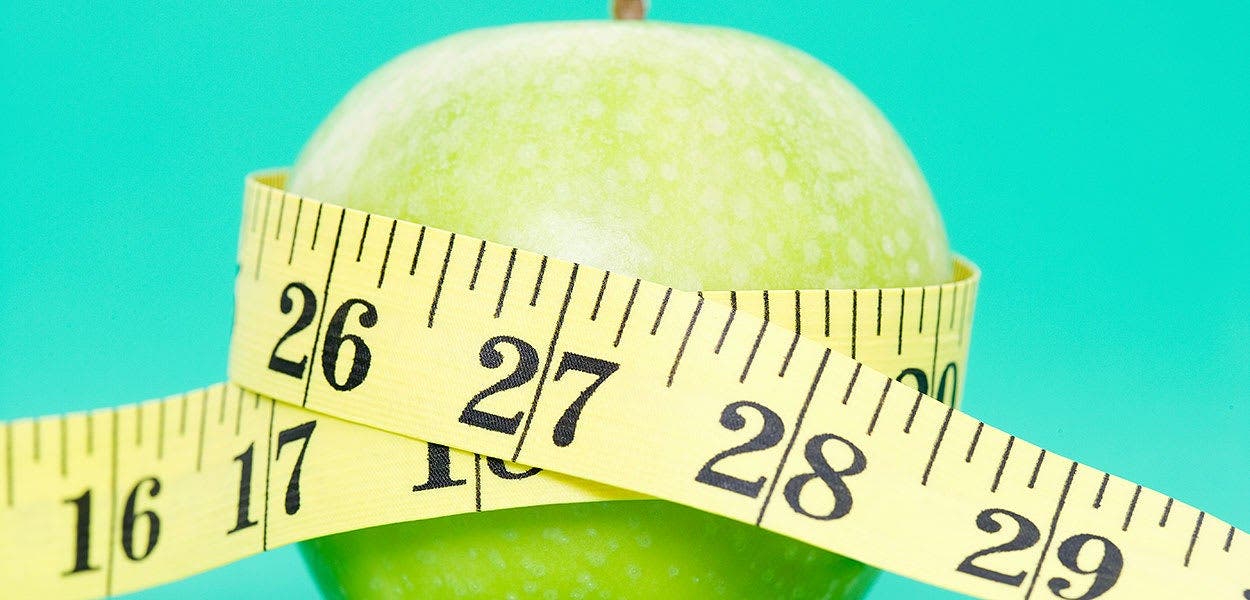5 Dangerous Side Effects of Losing Weight Too Fast


You’ve heard the advice a million times: Slow and steady wins the race. But then, you’re scrolling through Instagram and see a before-and-after photo of an acquaintance who lost double-digit pounds in days—and has a link to exactly how she did it. It’s tempting. ...
Her efforts may have earned her a smaller jeans size and plenty of clapping emojis, but the method of choice might not be cause for celebration. While it’s true that some deprivation diets can lead to short-term success on the scale, experts say that quick weight loss is often unsustainable and, in many cases, unhealthy.
“It seems like everyone who wants to lose weight wants to lose it fast,” says Cheryl Mussatto, RD, a registered dietician and author of The Nourished Brain. But if you're hoping to reach a healthy weight and maintain it long-term, pounds taken off gradually are more likely to stay off than pounds shed rapidly. Here’s why:
5 Dangers of Rapid Weight Loss
1. Restrictive dieting can leave you hungry (and hangry).
At first, ultra-restrictive rules that form the building blocks of most extreme weight loss plans may briefly cause your body and brain to feel better than it did before you jumped on the bandwagon—particularly if your old diet lacked balance or wholesome ingredients. “A so-called normal diet often consists of unhealthy, processed foods,” explains Sari Fine Shepphird, PhD, a Los Angeles-based psychologist. And when you change it up? “Feeling an initial rush of wellbeing isn’t entirely off the mark,” she confirms. But she doesn’t condone juice cleanses or crash diets, because any rush you might experience at the onset of your crash dieting is bound to be temporary.
Soon enough, extremely low-calorie diets—usually defined as under 1,000 calories per day—can bring on side effects including nausea, constipation, insomnia, and irritability, according to Mussatto. And don’t be surprised if you also find yourself dealing with a splitting headache, low energy, and a bad mood after comfortably zipping up a dress that’s been feeling tight.
Oh, and as for “hanger,” the moodiness that kicks in when you’ve eaten too little? It’s real: A 2018 study published in the journal Emotion found that hunger may cause people to experience a negative, antisocial emotional state.
2. Fast weight loss strategies aren’t sustainable in real life.
Following a restrictive or fasting diet during a week that includes eating with a partner, family, friends, coworkers, or clients will leave you saying “no” an awful lot—and probably stressing about what you’ll eat or avoid. Not only can this be logistically tricky, but all that deprivation could eventually fuel cravings, so you overeat as soon as you’re out of crash-diet mode. Bottom line: “Long-term, most people who try quick weight loss diets may lose some weight, but ultimately, they fail and usually struggle to keep weight off,” Mussatto says.
3. Fast weight loss programs can cut out nutrients you need.
Crash diets that promote quick weight loss by eliminating, say, entire food groups or macronutrients like carbohydrates, may cause you to miss out on essential vitamins and minerals that your body needs.
Many fad diets are nutritionally imbalanced, with lower scores for diet quality, particularly where the focus is on macronutrient composition rather than micronutrient intakes.
Deficiencies in certain micronutrients can negatively affect your immune system, energy, mood, and even your sleep patterns. And what good is weight loss if you end up physically and mentally worse for wear?
4. Taking the wrong DIY weight loss approach can set your body up for trouble.
It’s always smart to speak to your doctor before trying any new eating program. And when you do, they’ll likely warn you that there’s a general lack of research surrounding certain fad diets’ safety. (It could be why experts recommend against trying common ones like the ketogenic diet without medical supervision.)
The risks are real: In a small 2018 study published in the International Journal of Obesity, researchers found that very low calorie diets may cause a deterioration in heart function in some dieters.
In general, remember that whether or not a fad diet lowers your weight, the number on the scale doesn’t tell the whole story of your health.
5. Fast weight loss fixes can be unnecessarily expensive.
Many supplements and so-called weight loss foods cost a pretty penny. But are they effective? "A tried and true method for losing weight healthfully and slowly takes into account several components"—including portion control and moderation, Mussatto says. Because there’s no magic tea, shake, or pill that can replace these pillars, you might want to think twice before sinking cash into short-term results. Watching your wallet and your weight? Start by making small changes to your eating habits, like swapping out sugary (and pricey) smoothies, specialty coffees, and sodas for water, seltzer, and unsweetened tea.
The bottom line:
“Any time a diet sounds too good to be true, it often is,” Mussatto says. For sustainable weight loss, try a program that helps you establish healthy habits and allows you to go out to dinner and enjoy your favorite foods—even if it takes you a bit longer to reach your goals.
This article was reviewed for accuracy in June 2021 by Angela Goscilo, MS, RD, CDN, manager of nutrition at WW. The WW Science Team is a dedicated group of experts who ensure all our solutions are rooted in the best possible research.
